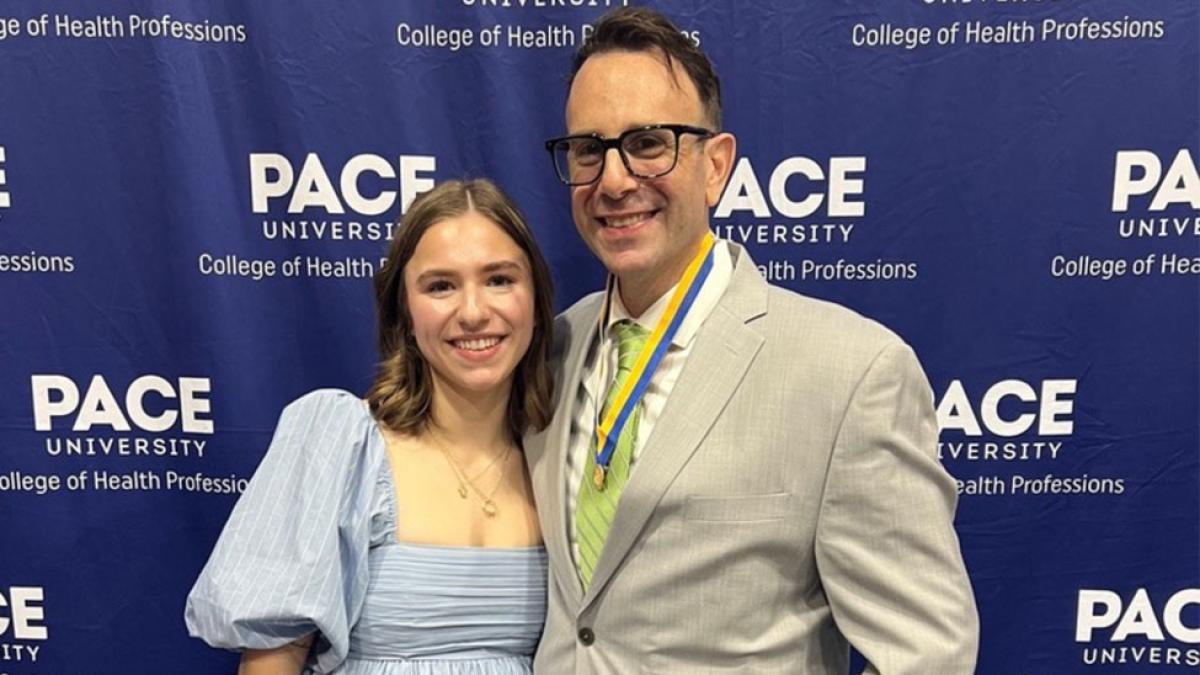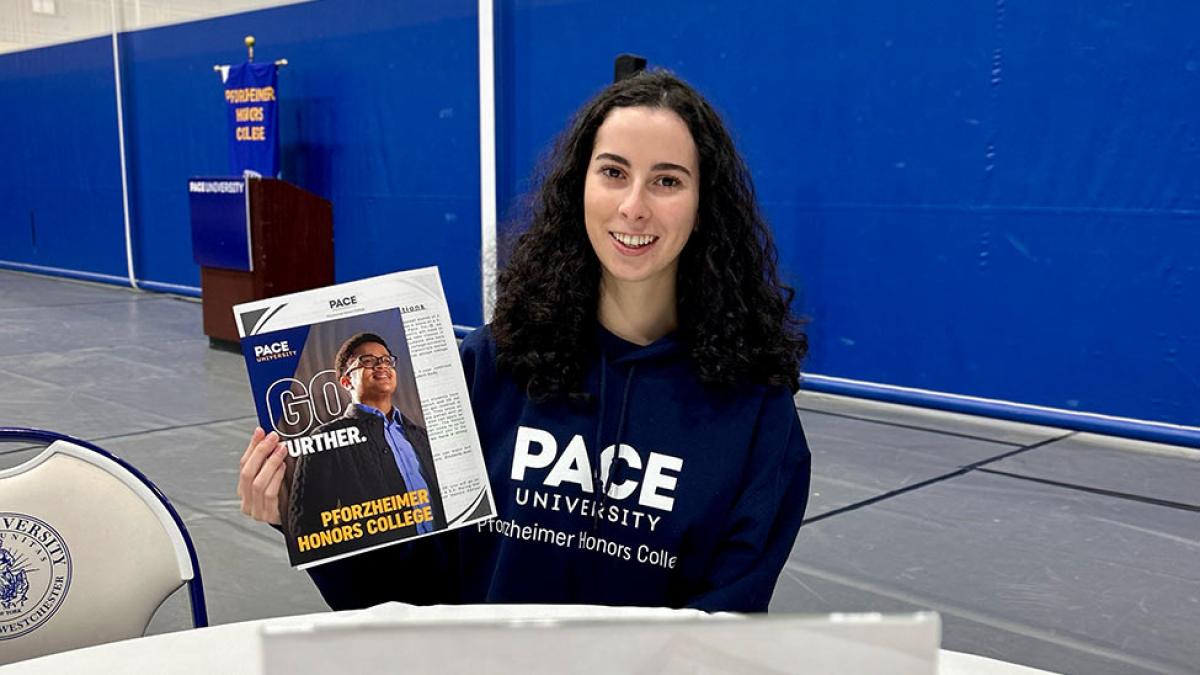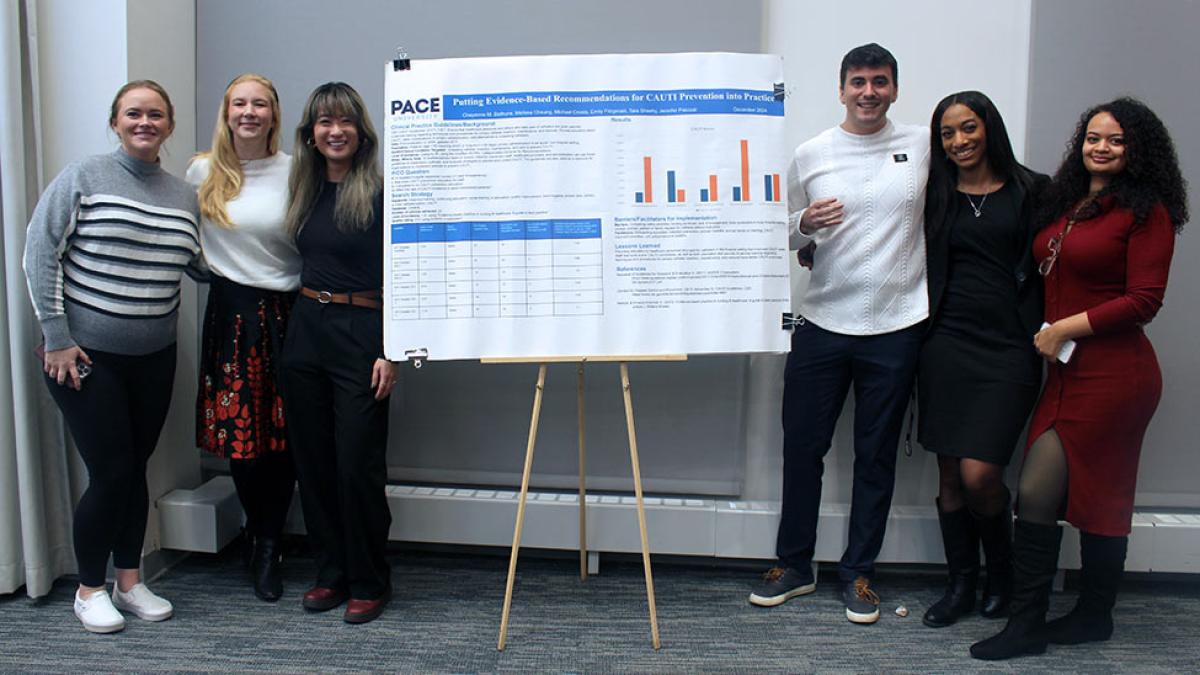College of Health Professions News
CHP Now
-
-
Press ReleaseOctober 1, 2025
-
In the Media
Latest News
Not everyone gets to say they went to college with their dad—and helped inspire his second act. Discover how Sofia Speranza ’27 and her father Frank found their calling in nursing, together.
The world is changing fast, and Pace University is preparing the leaders who will change it for the better. From healthcare to public service to law, our students aren’t just keeping up—they’re stepping up, driven by purpose, compassion, and the power to lead the future.
The Lienhard School of Nursing at the College of Health Professions shares sobering statistics in NJ.com on the limited access to service dogs—highlighting that fewer than 1% of Americans with disabilities currently have one.
Meet Azeem Azhar: a 2021 graduate of the Bachelor of Arts in Biological Psychology, Azeem continued into the Master of Science Physician Assistant Program – Pleasantville program, which he aims to have completed in December 2025. We connected with him to learn more about his leadership opportunities within the PA program!
Pace University awarded full accreditation in Human Simulation by the Association of Standardized Patient Educators (ASPE).
The Communication Sciences and Disorders program students work across the boroughs during their externships, to give students a diverse, hands-on education. Julia Bonoan, class of 2025, secured one of the most desired medical site locations for students at the Staten Island University Hospital.
Pace is proud to be named among a select group of universities driving innovation and equity. Explore our national recognitions in the 2025 Carnegie Classifications.
Michelle Novominski, now in her final semester of the RN-4 BS in Nursing program at Pace University, has made her mark through leadership roles in both the National Student Nurses Association and the Sigma Theta Tau International Honor Society of Nursing. We caught up with Michelle to hear about her journey, her love for nursing, and the impact of getting involved on campus.
From volunteering during the height of the COVID-19 pandemic, to finishing her degree, Nurse Practitioner Emily Fitzgerald’s journey to graduation embodies a #PaceGoGetter.
For the next installment of our "Importance of Professional Development" series, we connected with Alison Rebels, OTD, clinical assistant professor for the Occupational Therapy, MS program.
This past fall, Alison presented at the New York State Occupational Therapy Association (NYSOTA) conference, sharing her research on spirituality in occupational therapy. Most recently, Alison was awarded the Pace University 2024 President's Award for Outstanding Contribution. We connected with her to learn more about the presentation process, and the importance of being passion.















